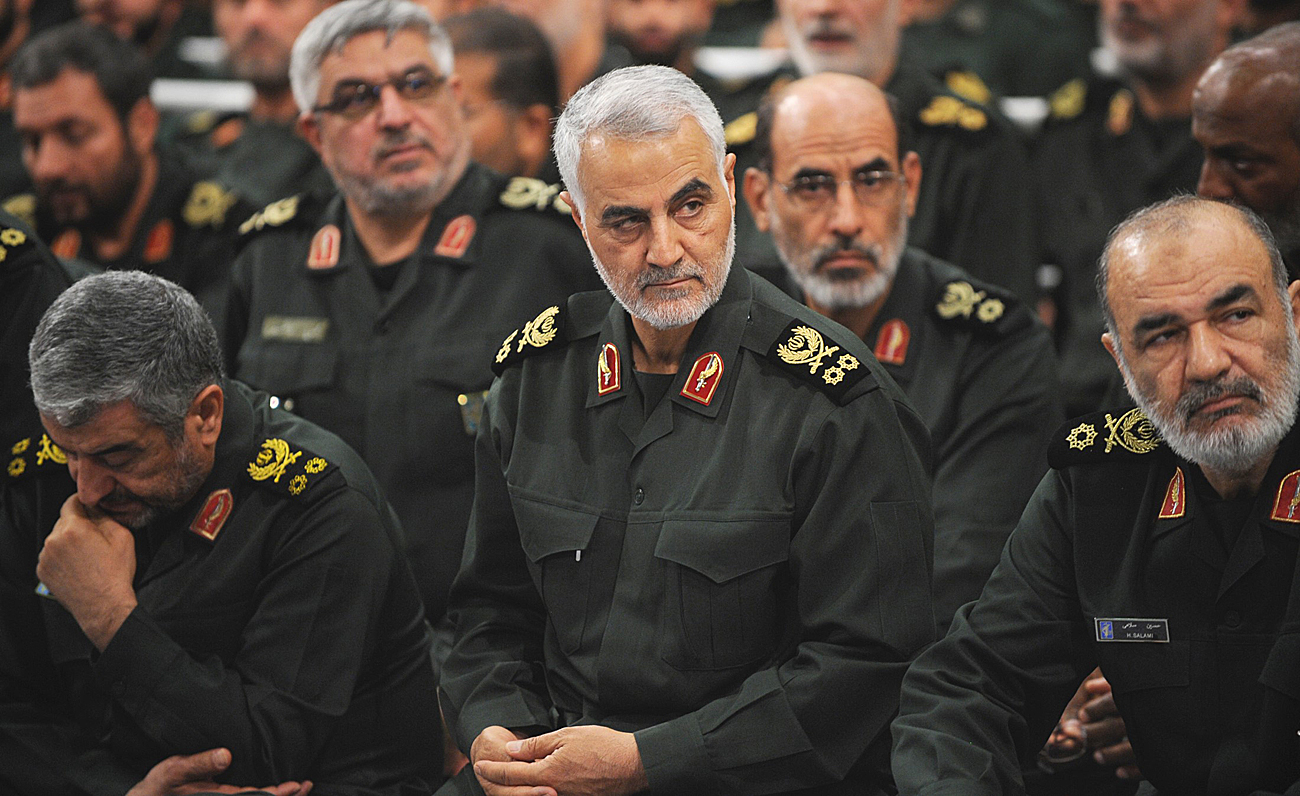The defeat of the Islamic State, also known as IS, ISIS or ISIL, in Syria may be considered a victory for the Syrian people and even viewed as a pathway for President Bashar Al Assad to remain in power. But Iranian leaders see Sunday’s victory a different way: as a blow to the United States and its allies.
In a message to Iran’s Supreme Leader Ayatollah Ali Khamenei, Chief of Staff of the Iranian Armed Forces General Bagheri called the collapse of the Islamic State the fall of “the ominous dominance of the U.S. and its regional and non-regional allies,” according to a November 22 report published by The Islamic Republic News Agency (IRNA).
Bagheri’s letter to Khamenei went on to read, “Although the end of ISIL's promise provokes the erosion of America's domination and regional and supranational supporters of the White House, the guidance and strategic guidance of Your Excellency. . . calls for intelligence towards the enemy as an obligation and a necessity.”
Bagheri added that the Iranian military will go on with equipping itself with “smart, defensive weaponry,” create “new capacities” to defend the country, and prevent terrorists and Iran’s enemies from committing “sedition” in the region in the future.
On November 19, the extremist group ISIS was flushed out of its last stronghold, located in the border town of Abu Kamal in Deir Ezzor province in Syria, near Iraq. The defeat of ISIS there marked an end to the group’s self-proclaimed caliphate, which it had declared in 2014.
Iran was actively involved in fighting ISIS in Syria, and it was one of the first countries to pledge assistance to Iraq to fight the group. As a supporter of Assad’s regime in Syria, Iran had deployed its Quds Force to the country beginning in 2012.
Iranian-backed Lebanese militant group Hezbollah also has over 10,000 fighters deployed in southern Syria, including an infantry army equipped with rockets, tanks, and elite forces.
General Bagheri was not Iran’s only military leader to have congratulatory words after the downfall of ISIS in Syria.
“I announce the termination of the rule of this vicious, cursed entity, following the completion of the liberation operation of Abu Kamal as ISIS' last fort, bringing down the flag of this U.S.-Zionist made terrorist group, raising the flag of Syria,” read a letter from the Commander of the IRGC, Major General Qassem Soleimani.
“I congratulate you and the noble nation of Islamic Iran, as well as the nations of Iraq, Syria, and other Muslims of the world,” read Soleimani’s November 21 letter to Khamenei, according to the Supreme Leader’s official website.
Khamenei responded to Soleimani’s letter and described the defeat of ISIS as “a blow to the current and former United States government and their dependent regimes in the region, who created this group, and sought, in every way, to expand their abominable hegemony in the Western Asian region to strengthen the occupying Zionist regime's grip on it.”
Yet not all Iranian officials had warm words following ISIS’ defeat in Syria on Sunday.
IRGC commander Major General Mohammad Ali Jafari, said that the victory over ISIS should not be regarded as the total “annihilation” of the group, warning that the terror outfit still poses a threat to the Muslim world and the region.
Iran has long been fighting against IS in Iraq and Syria, but it had not faced any attacks on its soil by the group until June 7, 2017, when 17 people were killed and more than 40 wounded in simultaneous attacks in Tehran. One attack was launched on Iran’s parliament and another on the mausoleum of Ayatollah Khomeini, the head of the 1979 Iranian Revolution.
While the deadly June attacks illustrated how ISIS has been a common enemy of both the West and Iran, and although Iran positions itself officially as being anti-ISIS, some say Tehran plays a double game in the Middle East.
A report released by the European Iraqi Freedom Association on Tuesday accused Iran of supporting terrorist groups.
“Iran and Sunni extremist groups, while having their differences, actually have much more in common. Their most important common denominator is their enmity towards the West, especially the U.S., and towards the Arab states,” reads the report.







 Russian peacekeeping forces, deployed in the Karabakh (Garabagh) region of Azerbaijan since 2020, have commenced their withdrawal from the area.
Russian peacekeeping forces, deployed in the Karabakh (Garabagh) region of Azerbaijan since 2020, have commenced their withdrawal from the area.
 The number of evacuees from flooded areas in Kazakhstan has reached 97,852 people, including about 32,856 children since March 27.
The number of evacuees from flooded areas in Kazakhstan has reached 97,852 people, including about 32,856 children since March 27.
 Azerbaijan officially unveiled the logo for the upcoming 29th session of the Conference of the Parties to the United Nations Framework Convention o...
Azerbaijan officially unveiled the logo for the upcoming 29th session of the Conference of the Parties to the United Nations Framework Convention o...
 The Kazakh authorities have increased their arbitration claims against international oil companies involved in the development of the Kashagan oil ...
The Kazakh authorities have increased their arbitration claims against international oil companies involved in the development of the Kashagan oil ...



